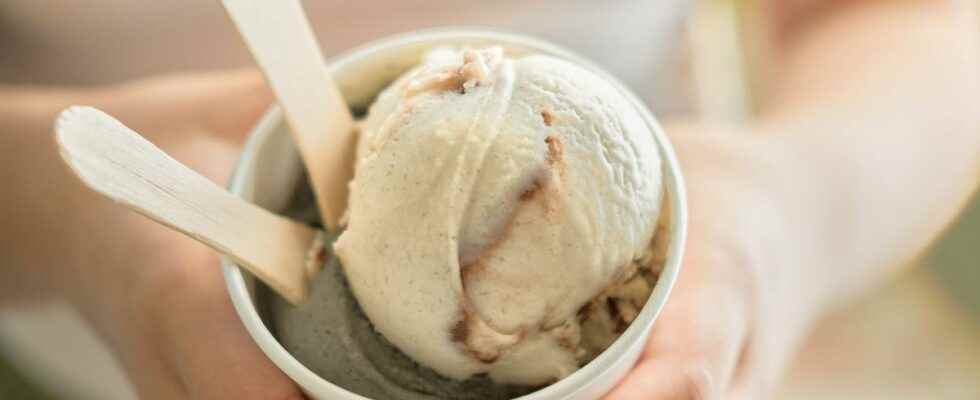Published on
Updated
Reading 2 mins.
Plant-based alternatives as a communication and business tool. This is the successful bet of the Swedish giant. In its annual report dedicated to marking its ambitions and laying out the lines of thought to reduce its carbon footprint, Ikea communicates its intention to eliminate dairy products, if not to replace them. A strong signal for a company whose popularity no longer depends solely on furnishings.
It’s been a long time that Ikea is no longer content to furnish our interiors with a host of well thought-out structures to simplify storage. Thought out as a complete immersion experience, the visit route does not forget either the lunch break or the snack by offering a cafeteria, in order to spread out a food offer dense enough to convince families to take the time to feed their stomachs. juveniles and not to leave the premises to finish the races in peace. Ikea has calculated that 520 million people have tasted its food offer in 2022, all food formulas combined.
The business of plant-based food
In 2015, the Swedish giant took a major turn by launching a vegetable adaptation to one of its most famous dishes: dumplings. And the success is still relevant: the share of sales has increased from 14% to 17% between 2021 and 2022. A success that has completely made people forget the health scandals in which Ikea was involved a decade ago when the chain of stores was forced to withdraw from sale its meatballs due to the presence of horse meat and then its chocolate pies infected with fecal matter.
Meatballs aren’t Ikea’s only iconic offering. There are also hot dogs that you can adapt to your liking at the exit of the checkout. Their version without animal protein is a link in the food business of Ikea orchestrated around the vegetable offer. Sales have indeed doubled between 2019 and 2022.
In his FY22 balance sheet, Ikea estimates the carbon footprint generated by its activity at 25.8 million tonnes of CO2 equivalent (a decrease according to the brand of 5% compared to the previous year), and this in a context of growth with sales amounting to 44.6 billion euros in 2022. In the same way as a circular system to better repair furniture or the use of led lamps in its appliances, food appears as an essential axis in the strategy of the brand to reduce its energy bill. In its intention to offer menus offering half a vegetable offer by 2050, Ikea then wrote in black and white in its project to replace, if not eliminate, all dairy products of animal origin.
In reality, the brand has already started the transformation since it sells vegan ice cream. In 2019, the brand launched throughout Europe a strawberry ice cream without animal protein. The chocolate flavor has since joined it.
Pointing specifically to dairy products as a source of carbon emissions is in fact a well-founded and particularly effective strategy. According to the professional magazine Réussir, in France alone, factories processing milk, cream and yogurts were responsible for 942,497 tonnes of oil equivalent per year in 2019, compared to 453,778 tonnes for the meat industry. Globally, the dairy sector accounts for 4% of all greenhouse gas emissions, according to data from FAO, the Food and Agriculture Organization of the United Nations.
